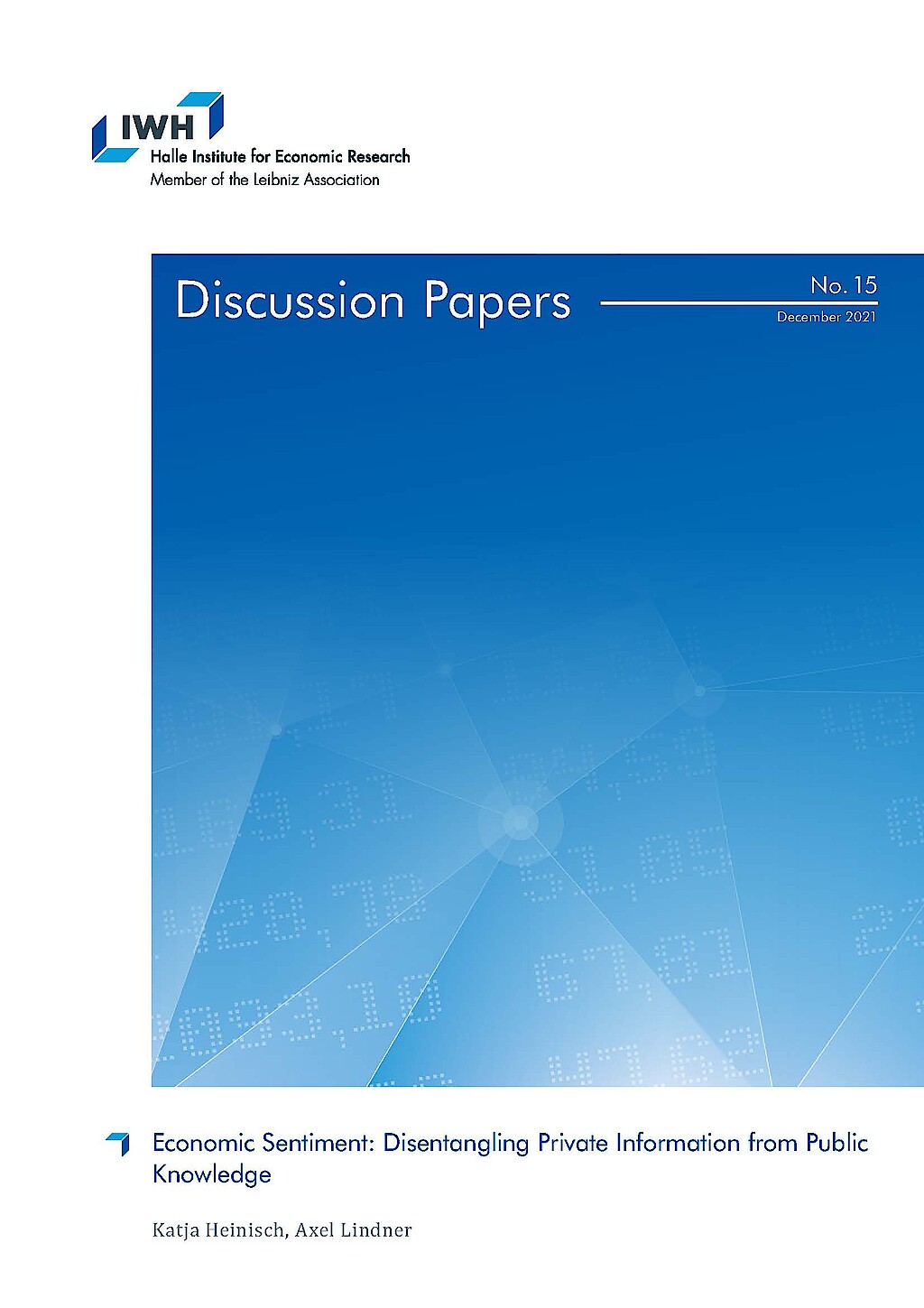
Economic Sentiment: Disentangling Private Information from Public Knowledge
in: IWH Discussion Papers, Nr. 15, 2021
Abstract
This paper addresses a general problem with the use of surveys as source of information about the state of an economy: Answers to surveys are highly dependent on information that is publicly available, while only additional information that is not already publicly known has the potential to improve a professional forecast. We propose a simple procedure to disentangle the private information of agents from knowledge that is already publicly known for surveys that ask for general as well as for private prospects. Our results reveal the potential of our proposed technique for the usage of European Commissions‘ consumer surveys for economic forecasting for Germany.

Outperforming IMF Forecasts by the Use of Leading Indicators
in: IWH Discussion Papers, Nr. 4, 2014
Abstract
This study analyzes the performance of the IMF World Economic Outlook forecasts for world output and the aggregates of both the advanced economies and the emerging and developing economies. With a focus on the forecast for the current and the next year, we examine whether IMF forecasts can be improved by using leading indicators with monthly updates. Using a real-time dataset for GDP and for the indicators we find that some simple single-indicator forecasts on the basis of data that are available at higher frequency can significantly outperform the IMF forecasts if the publication of the Outlook is only a few months old.

Evaluating communication strategies for public agencies: transparency, opacity, and secrecy
in: IWH Discussion Papers, Nr. 8, 2008
Abstract
This paper analyses in a simple global games framework welfare effects stemming from different communication strategies of public agencies if strategies of agents are complementary to each other: communication can either be fully transparent, or the agency opaquely publishes only its overall assessment of the economy, or it keeps information completely secret. It is shown that private agents put more weight to their private information in the transparent case than in case of opacity. Thus, in many cases, the appropriate measure against overreliance on public information is giving more details to the public instead of denying access to public information.



